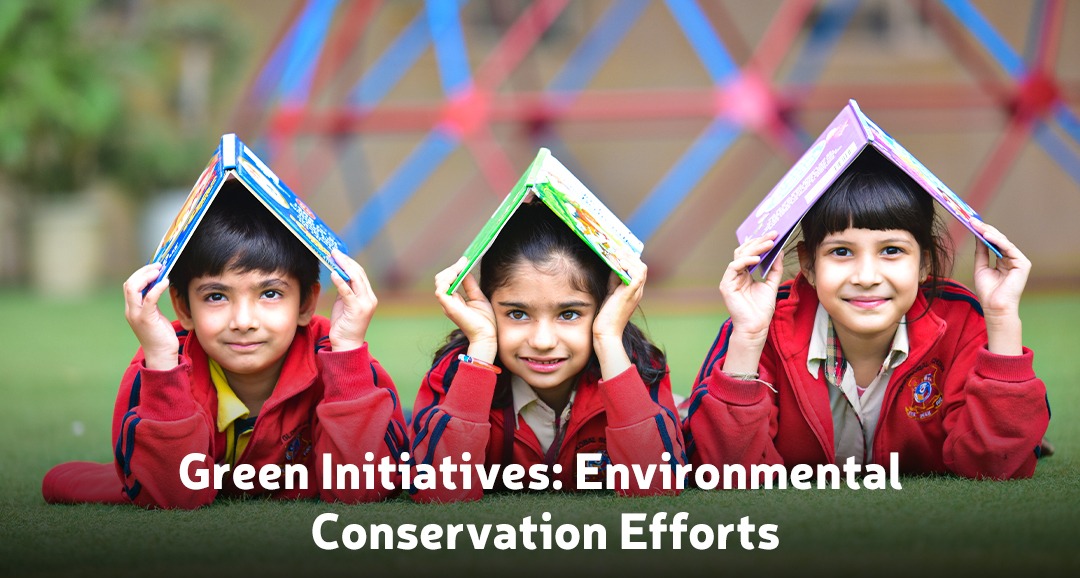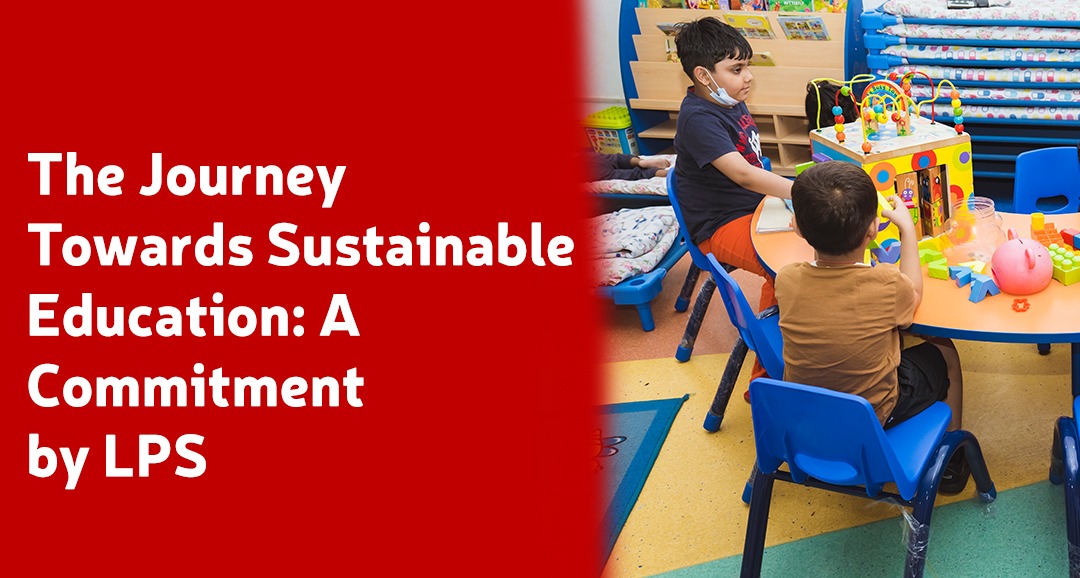Introduction
In an era of increasing environmental challenges, it is imperative for educational institutions to take proactive steps towards environmental conservation and sustainability. LPS Global School, renowned as One of the Best School in Noida, is committed to green initiatives aimed at preserving the planet for future generations. In this article, we delve into the environmental conservation efforts at the School, highlighting its commitment to sustainability, eco-conscious practices, and fostering environmental stewardship among students.
Sustainable Campus Infrastructure: Building for the Future
At School, sustainability is integrated into every aspect of campus infrastructure and operations. The school has implemented green building practices and technologies to minimize its environmental footprint and enhance energy efficiency. From energy-efficient lighting and HVAC systems to water-saving fixtures and renewable energy sources, the campus infrastructure is designed to reduce energy consumption, conserve water, and minimize waste. Moreover, the school prioritizes eco-friendly materials and construction techniques in building and renovation projects, ensuring that sustainability is embedded in the physical environment of the school.
Waste Management and Recycling Programs: Reducing Waste, Promoting Recycling
Waste management and recycling programs play a crucial role in promoting environmental sustainability at School. The school has implemented comprehensive waste segregation systems, composting initiatives, and recycling programs to reduce waste generation and promote resource conservation. Students are actively involved in waste management activities, participating in waste audits, composting organic waste, and sorting recyclable materials. Additionally, the school collaborates with local recycling facilities and waste management agencies to ensure that waste is disposed of responsibly and recycled whenever possible. By instilling a culture of waste reduction and recycling, School promotes environmental stewardship and fosters a sense of responsibility towards the planet.
Environmental Education and Awareness: Nurturing Eco-Conscious Citizens
Environmental education is an integral component of the curriculum at School, aimed at fostering environmental literacy and awareness among students. The school integrates environmental themes and topics across various subjects, providing students with opportunities to learn about ecological systems, biodiversity, climate change, and sustainable development. Moreover, the school organizes environmental awareness campaigns, eco-themed events, and green initiatives that engage students in hands-on learning experiences and community outreach activities. By nurturing eco-conscious citizens, the School empowers students to become advocates for environmental conservation and agents of positive change in their communities.
Biodiversity Conservation: Protecting Natural Habitats
Biodiversity conservation is a key focus area of environmental conservation efforts at the School. The school has established green spaces, gardens, and wildlife habitats on campus to promote biodiversity and protect natural ecosystems. Students are actively involved in biodiversity conservation activities, including native tree planting, butterfly gardening, and birdwatching. Additionally, the school collaborates with local conservation organizations and environmental agencies to support habitat restoration projects and wildlife conservation initiatives in the surrounding area. By protecting natural habitats and promoting biodiversity, School contributes to the preservation of local ecosystems and fosters a deeper connection to the natural world among students.
Sustainable Transportation Initiatives: Reducing Carbon Footprint
Sustainable transportation initiatives play a crucial role in reducing the carbon footprint of the School and promoting eco-friendly commuting options for students and staff. The school encourages alternative modes of transportation such as walking, cycling, carpooling, and public transit to reduce reliance on fossil fuel-powered vehicles. Moreover, the school provides bicycle racks, pedestrian pathways, and designated carpooling zones to facilitate sustainable transportation options on campus. Additionally, the school organizes awareness campaigns and events to promote sustainable commuting habits and raise awareness about the environmental benefits of eco-friendly transportation. By promoting sustainable transportation initiatives, it reduces greenhouse gas emissions, alleviates traffic congestion, and fosters a culture of environmental responsibility among students and staff.
Community Engagement and Outreach: Partnering for Change
Community engagement and outreach are integral components of the School’s environmental conservation efforts, aimed at fostering collaboration and collective action for positive environmental change. The school partners with local environmental organizations, government agencies, and community groups to organize tree planting drives, clean-up campaigns, and environmental awareness workshops in the local community. Moreover, the school engages students in service-learning projects and community service activities that address environmental issues and contribute to the well-being of the community. By fostering partnerships and collaboration, the School promotes environmental stewardship and empowers students to make a difference in their communities.
Sustainable Food Initiatives: Promoting Healthy and Eco-Friendly Eating
Sustainable food initiatives promote healthy eating habits and reduce the environmental impact of food consumption. The school sources locally grown, organic produce whenever possible, supporting local farmers and reducing food miles. Moreover, the school emphasizes plant-based options, sustainable seafood choices, and food waste reduction strategies in school meals and cafeteria offerings. Additionally, the school implements composting programs to divert food waste from landfills and promote nutrient recycling in the school garden. By promoting sustainable food initiatives, the school encourages healthy eating habits, reduces greenhouse gas emissions associated with food production, and fosters a culture of environmental sustainability among students and staff.
Conclusion
School’s environmental conservation efforts exemplify its commitment to sustainability, eco-conscious practices, and fostering environmental stewardship among students. Through sustainable campus infrastructure, waste management and recycling programs, environmental education and awareness, biodiversity conservation, sustainable transportation initiatives, community engagement and outreach, and sustainable food initiatives, the School promotes environmental sustainability and empowers students to become agents of positive change in their communities. As One of the Top Schools in Noida, LPS Global School remains dedicated to protecting the planet and inspiring future generations to live in harmony with nature.




